GEC na eSummit 2024
LIDERANÇA EM SUSTENTABILIDADE: CRITÉRIOS DA PRÓXIMA GERAÇÃO DO RÓTULO ECOLÓGICO EPEAT E PERSPECTIVAS DAS PARTES INTERESSADAS NA CADEIA DE ABASTECIMENTO
Quarta-feira - 23 de outubro - 2:00 - 3:45 pm CT
Junte-se ao Global Electronics Council (GEC) na eSustainability Summit para uma sessão especial em que apresentaremos os critérios da próxima geração do rótulo ecológico EPEAT®. Com lançamento em 2025, estes novos critérios irão definir as expectativas do mercado relativamente à sustentabilidade dos produtos TIC em quatro áreas prioritárias: alterações climáticas, circularidade, produtos químicos e cadeias de fornecimento responsáveis.
Esta sessão é uma oportunidade única para os profissionais do sector obterem uma visão antecipada dos critérios actualizados e ouvirem diretamente as partes interessadas de toda a cadeia de fornecimento de TIC. Quer seja um comprador, fornecedor ou reciclador, ficará a saber como estas alterações terão impacto nos seus objectivos de sustentabilidade e práticas operacionais.
Oradores em destaque
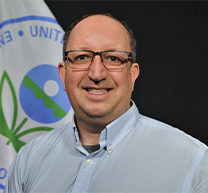
Chris Newman
Cientista ambiental, EPA
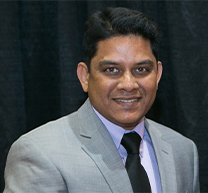
Puneet Shrivastava
Engenheiro principal, Dell
David Hirschler
Diretor de Sustentabilidade, ERI
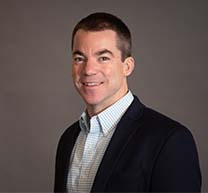
Bob Mitchell
Diretor Executivo, Conselho Mundial de Eletrónica
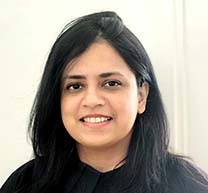
Shahana Althaf, PhD
Agenda do evento
23 de outubro de 2024
2:00 - 2:10 Introdução ao GEC & EPEAT
2:10 - 2:40 Descrição geral dos critérios actualizados EPEAT
2:40 - 3:20 Perspectivas das partes interessadas sobre a próxima geração de critérios do rótulo ecológico EPEAT
3:20 - 3:30 Perguntas e respostas e encerramento
Esta sessão oferecerá informações valiosas sobre o futuro da sustentabilidade dos produtos TIC, com destaque para os critérios de circularidade. Os líderes da indústria partilharão as suas perspectivas sobre os desafios de implementação e as oportunidades colocadas pelas novas normas.
Mantenha-se na vanguarda, juntando-se a nós para explorar a forma como a próxima geração de critérios EPEAT ajudará a moldar o panorama da tecnologia sustentável nos próximos anos.
Contacte-nos em criteria@gec.org para questões ou mais informações.
Mais sobre a SERI
O papel da SERI é reunir todas essas partes díspares para provocar uma mudança real. Esta organização única é a única organização sem fins lucrativos colaborativa e com múltiplos intervenientes no mundo, centrada exclusivamente na minimização dos riscos ambientais e para a saúde colocados pelos equipamentos electrónicos usados e em fim de vida, ao mesmo tempo que maximiza o valor social e económico apresentado por estes equipamentos. A SERI quer que todos pensem na eletrónica de forma diferente, que ajam de forma mais responsável e que tomem decisões sobre a nossa eletrónica utilizando a sustentabilidade como a nossa estrela guia. Porque, ao fazê-lo, estaremos a proteger as pessoas e o ambiente, ao mesmo tempo que garantimos que os nossos equipamentos electrónicos fazem um mundo de bem.
Mais informações sobre o Global Electronics Council
O Global Electronics Council (GEC) acelera a mudança sistémica para criar uma indústria eletrónica 100% sustentável até 2050.
- Isto significa emissões líquidas nulas, zero resíduos, neutralidade hídrica e um impacto adverso mínimo no ambiente e nos direitos humanos ao longo do ciclo de vida dos produtos e serviços.
- Como administradores do rótulo ecológico EPEAT, definimos a norma global para produtos electrónicos sustentáveis.
- Capacitamos os fabricantes e compradores de produtos electrónicos a atingirem os seus objectivos de sustentabilidade através da nossa acreditação, defesa e liderança líderes mundiais.
- Estamos a remodelar a relação do mundo com a tecnologia e os recursos naturais e a permitir a transformação da eletrónica, de um desafio ambiental e social crescente numa solução sustentável e capacitadora.
O nosso trabalho acelera a mudança em quatro áreas críticas de ação:
- Ação climática: Orientar o mercado para reduzir as emissões de gases com efeito de estufa no fabrico, nas cadeias de abastecimento e na utilização de produtos electrónicos.
- Circularidade: Assegurar que os produtores de produtos electrónicos concebem os seus produtos e embalagens tendo em vista a longevidade, a reutilização e a reciclagem, com o objetivo de eliminar todos os resíduos da indústria.
- Produtos químicos preocupantes: Ajudar a eliminar a utilização de produtos químicos tóxicos que são perigosos para a saúde humana e para o ambiente.
- Cadeias de fornecimento responsáveis: Salvaguardar o fornecimento responsável de materiais, as práticas laborais justas e a saúde e segurança dos trabalhadores na cadeia de fornecimento de produtos electrónicos.
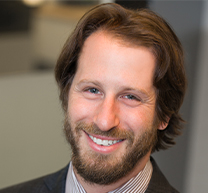
David Hirschler
Diretor de Sustentabilidade, ERI
David Hirschler é o Diretor de Sustentabilidade da ERI, a principal empresa de reciclagem de resíduos electrónicos do país. David é responsável pelas iniciativas internas e externas de sustentabilidade e circularidade da ERI, bem como pelas responsabilidades legislativas da ERI, que abrangem desde os regulamentos de responsabilidade do produtor até aos regulamentos de proteção de dados. Além disso, David é presidente do conselho de administração da FABSCRAP, uma organização sem fins lucrativos centrada na reciclagem e reutilização de resíduos têxteis comerciais. David trabalhou na área da reciclagem durante mais de 20 anos e tem um mestrado em Política e Planeamento Urbano e Ambiental da Universidade de Tufts.

Chris Newman
Cientista ambiental, EPA
Chris Newman é um cientista ambiental da Agência de Proteção Ambiental dos Estados Unidos. Há mais de 20 anos que trabalha na gestão sustentável de materiais e na gestão de fim de vida de produtos electrónicos. Trabalhou com o pessoal das agências ambientais estatais da região centro-oeste para apoiar o desenvolvimento e a gestão dos seus programas estatais de resíduos electrónicos. Chris tem estado envolvido no desenvolvimento de critérios para várias normas de aquisição sustentável que abrangem produtos electrónicos e trabalhou com partes interessadas federais para desenvolver recursos de gestão de fim de vida para produtos electrónicos, programas que ajudam a melhorar a gestão de bens electrónicos e outras práticas sustentáveis. Com o avanço da tecnologia, também se envolveu em questões relacionadas com baterias de lítio e fotovoltaicas, bem como com minerais críticos. Chris é também copresidente do comité de direção da Rede Internacional de Gestão de Resíduos Electrónicos, que é uma parceria entre a EPA dos EUA e o Ministério do Ambiente de Taiwan que ajuda a melhorar a gestão de resíduos electrónicos em países parceiros em todo o mundo.

Puneet Shrivastava
Engenheiro principal, Dell
Puneet é o líder de domínio para conceção ecológica e materiais restritos na equipa de arquitetura de conformidade da Dell. Com mais de 16 anos de experiência na equipa de conformidade de produtos da Dell, Puneet liderou vários programas de conformidade de conceção ecológica, materiais e retoma de produtos. Desempenhou um papel fundamental na criação do primeiro programa de plástico reciclado de circuito fechado certificado do sector e fez parte do comité técnico que trabalhou na revisão principal da norma R2V3. Puneet também garantiu que todos os parceiros ITAD da Dell fossem certificados de acordo com a norma R2V3. Ele liderou a transição para digitalizar os processos de declaração de conformidade de materiais, aumentando significativamente a eficiência e a transparência do processo de aprovação de peças.
Nos últimos dois anos, Puneet tem sido um membro ativo do comité técnico de Utilização Sustentável de Recursos e Produtos Químicos Preocupantes do GEC, trabalhando na próxima revisão da norma e representando a Dell. Atualmente, colabora com várias partes interessadas, dentro e fora da Dell, para garantir que a sustentabilidade dos produtos continua a ser uma prioridade máxima.

Shahana Althaf, PhD
Cientista investigador, Desenvolvimento de critérios de sustentabilidade
Como investigadora, Desenvolvimento de Critérios de Sustentabilidade, a Dra. Shahana Althaf conduz a investigação sobre os impactos ambientais e sociais do ciclo de vida da eletrónica para desenvolver métricas de desempenho ambiental e ferramentas para quantificar os benefícios dos produtos tecnológicos sustentáveis. Também efectua análises de mercado de tecnologias para desenvolver o roteiro para alargar o impacto da missão do GEC.
A Dra. Althaf tem mais de nove anos de experiência em investigação sobre sustentabilidade, tanto em projectos académicos como no sector empresarial. Antes de se juntar ao GEC, trabalhou como cientista de sustentabilidade para uma empresa de consultoria de contabilidade de gases com efeito de estufa, onde liderou projectos de impressão digital para clientes do sector eletrónico e têxtil durante mais de dois anos. Trabalhou como contratante individual para a agência das Nações Unidas UNITAR na realização de investigação sobre gestão de resíduos electrónicos nas Américas e é uma das autoras do relatório Global E-waste Monitor 2024 das Nações Unidas.
A Dra. Althaf tem um doutoramento em Sustentabilidade e um mestrado em Engenharia de Telecomunicações do Rochester Institute of Technology, EUA. O seu bacharelato é em Engenharia Eletrónica e de Comunicações. Após o doutoramento, trabalhou como associada de pós-doutoramento no Centro de Ecologia Industrial da Universidade de Yale durante mais de dois anos. Durante o seu período de pós-doutoramento em Yale, foi também membro do Global Future Council for Net Zero Transition do Fórum Económico Mundial. A Dra. Althaf publicou vários artigos em revistas de grande impacto, capítulos de livros e relatórios sobre o tema da sustentabilidade no sector da eletrónica. A sua investigação ganhou prémios como o prémio de melhor artigo do The Journal of Industrial Ecology - Graedel Prize 2020 e o prémio de melhor artigo do RCR 2019. Está sediada em Rochester, Nova Iorque.

Bob Mitchell
Diretor Executivo, Conselho Mundial de Eletrónica
Como Diretor Executivo do Global Electronics Council, Bob fornece liderança e supervisão estratégica da organização para cumprir a sua visão e missão. Ele tem uma vasta experiência em negócios e direitos humanos, sustentabilidade ambiental, gestão de organizações sem fins lucrativos e sustentabilidade e programas corporativos.
Como ex-vice-presidente de Direitos Humanos e Meio Ambiente da Responsible Business Alliance (RBA), Bob liderou o desenvolvimento de estratégias e a implementação de programas de conduta empresarial responsável em um ambiente multissetorial e com várias partes interessadas. Nesta função, ele conduziu o início e o lançamento de esforços significativos em áreas como Due Diligence de Trabalho Forçado, Descarbonização das Cadeias de Fornecimento, Circularidade e Resiliência da Cadeia de Fornecimento.
É um veterano da Hewlett Packard e da Hewlett Packard Enterprise, com mais de uma década e meia de trabalho no domínio da sustentabilidade. Antes de trabalhar na RBA, foi Diretor, Responsabilidade Social e Ambiental Global na Hewlett Packard Enterprise, liderando uma equipa de profissionais em direitos humanos, gestão ambiental de produtos, responsabilidade da cadeia de fornecimento e minerais de conflito, entre outras áreas problemáticas. Bob também fez parte do Conselho de Administração da RBA e do Conselho Consultivo da Social Accountability International (SAI). Tem um MBA da Universidade do Arizona e um bacharelato da Universidade da Virgínia.

